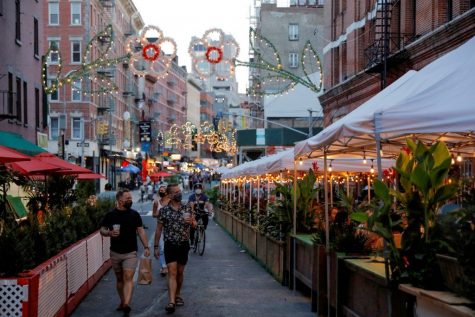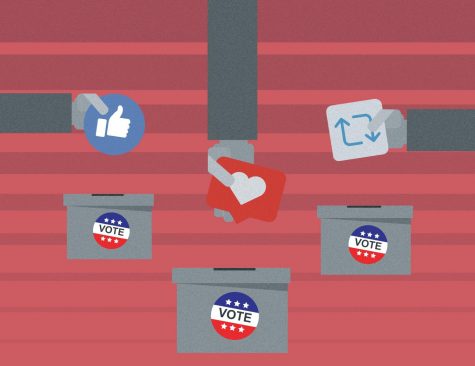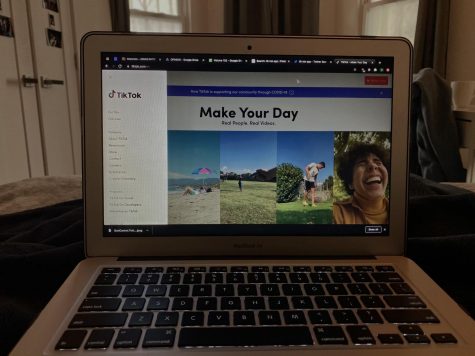#EndSARS Brings Needed Attention to Violence in Nigeria
November 4, 2020
There have been many social issues publicized over social media lately such as the Black Lives Matter protests over the summer, the 2020 presidential election and most recently a movement using the hashtag #EndSARS.
SARS stands for Special Anti-Robbery Squad and was formed in Nigeria in 1992. This special police force was established to fight armed robbery; however, since the group’s formation, it has become a perpetrator of the crimes it is supposed to be preventing.
According to CNN, the police officers do not have any identification to indicate they are part of law enforcement and have forgone uniforms and badges. CNN also reports that Amnesty International recorded 82 cases of police brutality at the hands of SARS officers between 2017 and 2020. The Amnesty International report also cited that people in SARS custody have been subjected to horrific violent acts, such as beatings and waterboarding.
The people of Nigeria have long spoken out about the brutality of SARS, but they recently reached their breaking point, sparking #EndSARS, when the officers attacked a young man and then drove off with his luxury car.
The large youth population in Nigeria — 40% of the population is under 30, according to CNN — has grown frustrated with the government and taken to the streets to protest the brutality of the SARS officers.
The government’s response to these protests involved tear gas and water cannons as well as launching live ammunition into the crowd. Since the violence that has erupted at these peaceful protests, protesters have stopped marching in person for fear of their physical safety.
Many people have started to identify similarities between the #EndSARS protests and the Black Lives Matter protests that happened all over the United States this past summer. The Black Lives Matter protests were similarly in response to police brutality and violence; however, on a larger scale, the protests are about eradicating systemic racism and racial inequality in the United States.
A majority of these protests remained peaceful, but some ended in violence. The Washington Post reports one such instance of violence when law enforcement officers fired rubber bullets and released chemical gas on protesters outside the White House this past June.
Another similarity between the two movements is the looting that happened at both protests. While destruction of property is not right, the focus on criticizing looting drew attention away from the importance of the issue at hand and seemingly placed greater importance on property than Black lives.
Both the #EndSARS movement and the Black Lives Matter movement are aimed at ending police brutality and working to reform the system that makes this brutality possible.
U.S. policing is rooted in slavery. The first police department was established as a slave patrol, and today the modern policing system continues to oppress the Black community. This can be seen by tracing events through history such as Jim Crow laws, the War on Drugs and the use of violence at protests. The ACLU breaks down what Americans mean when they call for defunding the police. Defunding the police would dismantle an oppressive system and instead “invest in institutions, resources, and services that help communities grow and thrive.”
Okon Nya, editor of Nigerian sports website Busy Buddies, told USA Today that the Black Lives Matter protests and push for defunding the police inspired Nigerian protesters as a sign that taking action and demanding systemic reform is possible.
President Muhammadu Buhari of Nigeria responded to the violence by telling protesters to stay off the streets and stop the protests. Mohammed Adamu, the inspector general of police, announced the disillusionment of SARS for the fourth time in the past four years earlier in October, according to CNN.
Whether or not the United States should get involved with these protests is a difficult question. One of the pillars of democracy in the U.S. is freedom of speech, which Nigerians are exercising through these protests. The U.S. also has to consider diplomatic relations with each country before deploying armed forces. Would this create a bigger problem for the U.S., such as a potential conflict between themselves and Nigeria?
In the end, the right to freedom of speech is being violated, and the protesters are in physical danger. The safety of the Nigerian people is the most important in this situation, so the U.S. should step in, peacefully, to make sure protesters are safe.
As with the Black Lives Matter protests, celebrities such as Rihanna, Kayne West and John Boyega are again using their platforms to bring awareness to #EndSARS.
Fordham students can also use their social media platform to educate fellow students on the #EndSARS movement by sharing posts and videos to make sure our community is informed about global issues.
Jamison Rodgers, FCRH ’24, is an English major from Silver Spring, Md.












If you want a picture to show with your comment, go get a gravatar.